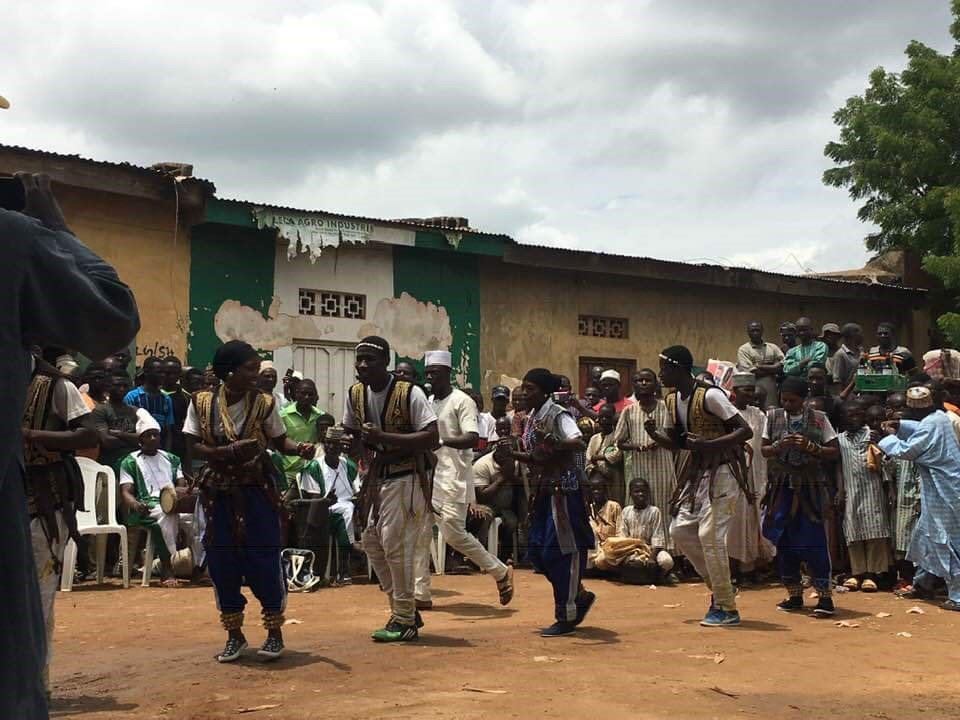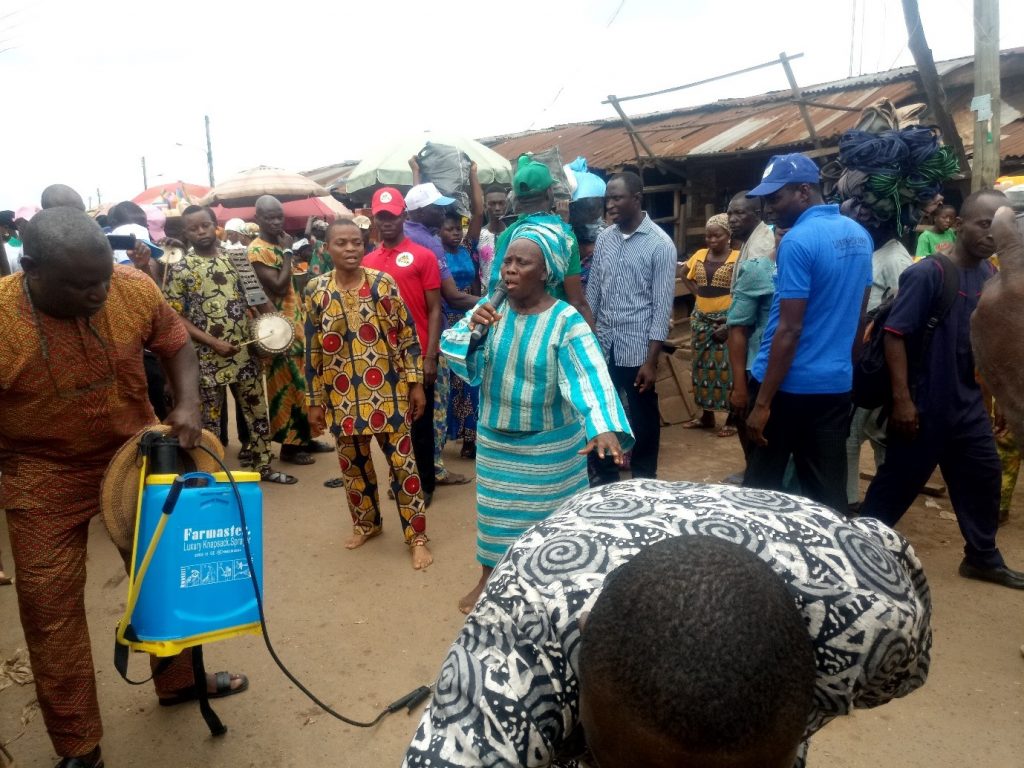Melaku Gedil and Abebe Menkir. 2019. An Integrated
Molecular and Conventional Breeding Scheme for Enhancing Genetic Gain in Maize
in Africa. Published in Frontiers. Plant Sciences and accessible here
Adu, G. B., Badu-Apraku, B., Akromah, R.,
Garcia-Oliveira, A. L., Gedil, M., Awuku, F. J. 2019. Genetic diversity and
population structure of early-maturing tropical maize inbred lines using SNP
markers, published in PloS ONE, volume
14, number 4 and accessible here
Badu-Apraku, B., Talabi, A. O., Fakorede, M.,
Fasanmade, Y., Gedil, M., Magorokosho, C., Asiedu, R. 2019. Yield gains and
associated changes in an early yellow bi-parental maize population following
genomic selection for Striga resistance and drought tolerance, published in BMC
Plant Biology, volume 19, number 129, and accessible here.
Bankole, F., Menkir, A., Olaoye , G.*, Olakojo, O.*,
Gedil, M. 2019. Association studies between grain yield and agronomic traits of
a MARS maize (Zea mays L.) population under drought and non-stress condition, published
in Acta Agriculturae Slovenica, volume 114, and accessible here.
Kammo, E. Q., Suh, C., Mbong, G.
A., Djomo, S. H., Chimi, N. L. L., Mbeungang, D.
L., Mafouasson, H. A., Meseka, S. K. and Menkir, A. 2019. Biological
versus chemical control of fall armyworm and Lepidoptera stem borers of maize
(Zea mays), published in Agronomie Africaine, volume 31, number 2, and
accessible here.
Kolawole, A. O., Menkir, A., Blay,
E., Ofori, K. and Kling, J. G., 2019. Changes in heterosis of
maize (Zea mays L.) varietal cross hybrids after four cycles of reciprocal
recurrent selection, published in Cereal Research Communications, volume 47,
number 1, and accessible here .
Sangare, A., Menkir, A., Ofori, K. and Gracen,
V., 2019. Studies on estimation of heterosis for striga resistance in maize
test crosses in Mali, published in Journal of Genetics, Genomics & Plant
Breeding, volume 3, number 3, and accessible here
Akaogu, I. C., Badu-Apraku, B., Tongoona,
P., Ceballos, H., Gracen, V. E., Offei, S. and Dzidzienyo,
D. 2019. Inheritance of Striga hermonthica adaptive traits in an early-maturing
white maize inbred line containing resistance genes from Zea diploperennis.
published in Plant Breeding, and accessible here
Annor, B., Badu-Apraku, B., Nyadanu,
D., Akromah, R. and Fakorede, M. 2019. Testcross performance and
combining ability of early maturing maize inbreds under multiple-stress
environments, published in NATURE Scientific Reports, volume 9, and accessible here
.
Nelimor, C., Badu-Apraku, B., Nguetta, S. P., Tetteh, A.
Y. and Garcia-Oliveira, A. L. 2019. Phenotypic characterization
of maize landraces from Sahel and Coastal west Africa reveals marked diversity
and potential for genetic improvement, published in Journal of Crop
Improvement, and accessible here .
Obeng-Bio, E., Badu-Apraku, B., Ifie, B.
E., Danquah, A., Blay, E. and Annor, B. 2019. Genetic analysis of grain yield and agronomic traits of early provitamin
A quality protein maize inbred lines in contrasting environments, published in The Journal of Agricultural
Science, and accessible here.
Nelimor, C., Badu-Apraku, B., Tetteh, A.
Y.* and Nguetta, A. S. 2019. Assessment of genetic diversity for
drought, heat and combined drought and heat stress tolerance in early maturing
maize landraces, published in Plants, volume 8, and accessible here.
Badu-Apraku, B., Fakorede, M., Talabi, A.
O., Oyekunle, M., Aderounmu, M., Lum, A. F., Ribeiro, P.
F., Adu, G. B. and Toyinbo, J. O. 2019. Genetic studies of
extra-early provitamin-A maize inbred lines and their hybrids in multiple
environments, published in Crop Science, and accessible here.
Badu-Apraku, B. and Akinwale, R. O. 2019. Biplot
analysis of line X tester data of maize (Zea mays L.) inbred lines under stress
and nonstress environments. Published in Cereal Research Communications, volume
47, number 3, and accessible here.
Oyinbo, O., Mbavai, J. J., Shitu, M.
B., Kamara, A., Abdoulaye, T. and Ugbabe, O. O. 2019. Sustaining
the beneficial effects of maize production in Nigeria: does adoption of short
season maize varieties matter? Published in Experimental Agriculture, and
accessible here
Kadjo, D., Ricker-Gilbert, J., Shively, G. and Abdoulaye,
T. 2019. Food safety and adverse selection in rural maize markets. Published in
Journal of Agricultural Economics, and accessible here
.
Assfaw Wossen, T., Alene, A., Abdoulaye,
T., Feleke, S. and Manyong, V. 2019. Agricultural technology
adoption and household welfare: measurement and evidence, published in Food
Policy, and accessible here


